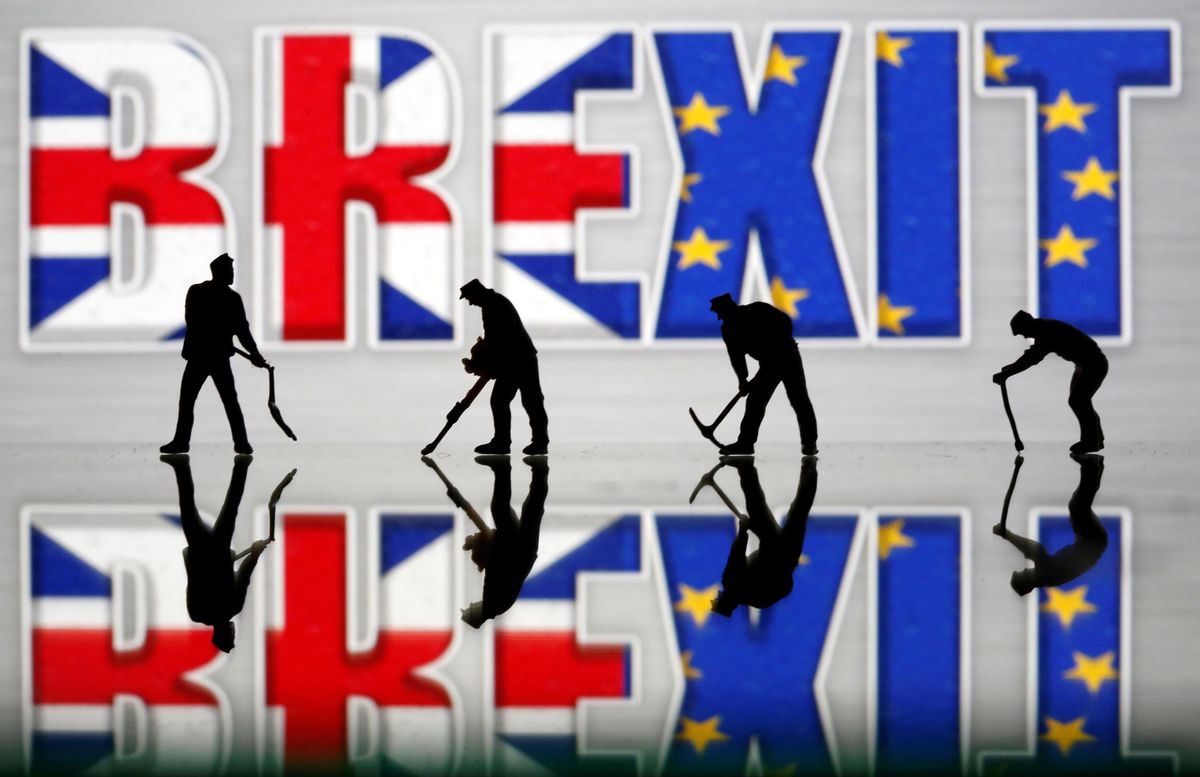Four and a half years after Britons voted to leave the EU, the missed deadlines and last-minute shenanigans are finally over. Just a week out from the December 31 deadline, when Great Britain would have crashed out of the European Union without a trade deal, the EU and the UK today announced they had reached an agreement on post-Brexit trade — the full details of which will become public in coming days.
The breakthrough comes as the two sides had come under intense pressure to settle their differences to avoid worsening the pandemic-induced recession. It's also an unexpected Christmas gift for Britons and Europeans, who have spent all year negotiating this deal and finally reached a consensus on several outstanding issues, including two key sticking points.
First, the "level playing field". Despite strong opposition from "hard Brexiteers," it appears the UK will have to respect EU rules that ensure it can't use labor, regulatory, environmental and tax policy to boost British competitiveness at the expense of European companies.
Second, fish. The UK and EU seem to have struck a compromise on the highly contentious issue of fishing rights, which almost derailed the agreement at the last moment. EU fishing boats will retain some access to British waters — albeit less access than they had when the UK was still part of the EU — while the UK will have more say in who can fish there and how much they can catch. This was a big deal for the Europeans, whose boats catch fish worth some £600 million (almost $813 million) in UK waters every year. Once terms are fully implemented, the UK will keep two thirds of its fish.
With today's announcement, Great Britain — which officially exited the EU on January 31, 2020 — avoids the nightmare scenario of a no-deal Brexit when the transition period expires on January 1. That could have resulted in major shortages, stranded truckers, and manufacturers facing huge delays to sell to EU customers. The EU breathes a sigh of relief too now that Britain will remain a mainly aligned commercial partner rather than a direct competitor in many industries.
So, what happens now? The Brits and Europeans still have one last bridge to cross. In order to come into effect, the deal will have to be ratified by the UK and EU parliaments, though widely shared fear of a no-deal crash will almost certainly move the process forward smoothly on both sides.
The UK and EU have yet to discuss how they'll cooperate on security issues, and we don't yet know specific details of how the agreement will affect UK financial services companies in the EU single market. But most agree that a deal is better than no deal, and that puts Johnson in a better position to negotiate a US-UK free-trade deal with the incoming Biden administration.
Looking ahead: There will be no no-deal Brexit, but it's still early to say how today's agreement will actually affect people and businesses on both sides of the English Channel. There are still many details to iron out. In other words, we haven't heard the last of Brexit and its impact.

















